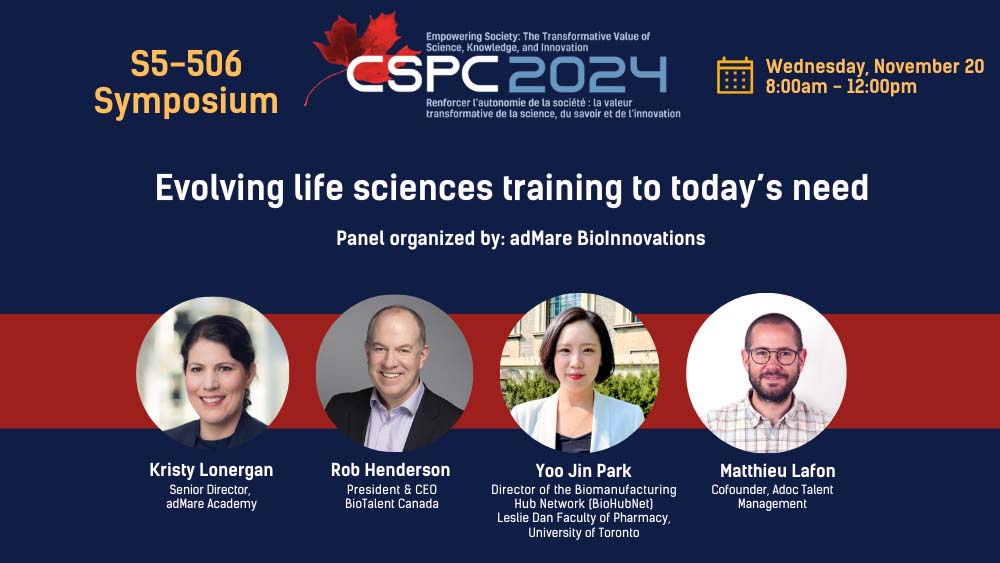Abstract:
Canada’s life sciences ecosystem is building momentum and the demand for life sciences professionals has never been so high. This panel aims to explore new opportunities and the need for a coordinated training strategy that will strengthen the Canadian life sciences workforce.
Summary of Conversations
The panel explored talent development for the life sciences industry, emphasizing the need to cultivate a skilled workforce beyond entrepreneurship to support established and emerging companies. Discussions highlighted a shift in PhD graduates seeking industry positions, driven by industry growth and recognition of their problem-solving and project management skills. A significant concern was a projected skills deficit, particularly in essential skills like critical thinking, communication, and numeracy, exacerbated by the shift to hybrid work environments. The panel also noted an increased desire for graduates to stay and work in Canada’s growing biotech sector due to infrastructure investments and facilities.
Take Away Messages/ Current Status of Challenges:
- A significant skills gap is projected in the bioscience industry, especially in essential skills, potentially impacting global competitiveness.
- Traditional academic models may not adequately prepare graduates for industry needs, particularly in professional and business skills.
- Hybrid and virtual work environments may hinder the development of interpersonal communication and collaboration skills crucial for innovation.
- Small and medium-sized bioscience enterprises often lack HR expertise to effectively manage, train, and retain talent.
- STEM enrollment is declining, and the industry faces diversity challenges, with fewer women employed compared to the number of female STEM graduates.
- A need exists to better align university funding models with industry needs to encourage career preparation.
- Artificial intelligence adoption in the bioscience industry is lagging, posing a risk to future competitiveness.
- There’s potential redundancy in training programs across different organizations, underscoring the need for better communication and landscape analysis.
Recommendations/Next Steps:
- Strengthen work-integrated learning programs, co-ops, and internships to provide hands-on experience and cultivate essential skills.
- Encourage universities to integrate industry-relevant training and skills development into their curricula.
- Foster partnerships between academia, industry, and government to align training programs with labor market needs.
- Support initiatives that offer flexible micro-credential courses to upskill current and prospective employees.
- Promote awareness and access to training opportunities through centralized platforms.
- Address the diversity gap in the bioscience workforce through targeted recruitment and retention strategies.
- Integrate AI training into bioscience education to prepare the workforce for future technological advancements.
- Improve communication and collaboration among training providers to reduce redundancy and maximize resource utilization.
* This summary is generated with the assistance of AI tools


